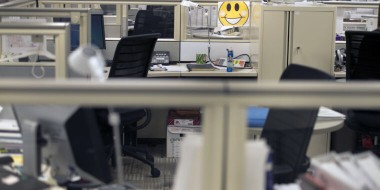RTO doesn’t improve company value, but does make employees miserable: Study
RTO doesn’t improve company value, but does make employees miserable: Study::Data is consistent with bosses using RTO to reassert control and scapegoat workers.

Welcome to Incremental Social! Learn more about this project here!
Check out lemmyverse to find more communities to join from here!
RTO doesn’t improve company value, but does make employees miserable: Study::Data is consistent with bosses using RTO to reassert control and scapegoat workers.
